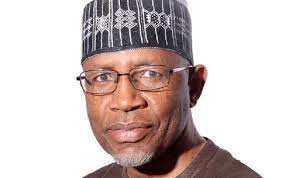The Securities and Exchange Commission (SEC) has attributed the reclassifications of Nigerian securities indices by FTSE-Russell and MSCI to the current foreign exchange (FX) liquidity challenges in the country and the effects on investor confidence in the economy.
FTSE Russell, a subsidiary of London Stock Exchange Group (LSEG), recently downgraded the Nigerian equities market just as the MSCI Nigeria Indexes had announced plans to reclassify the Nigerian market from frontier markets to standalone markets status in one step coinciding with the February 2024 index review
The Director General of the SEC, Lamido Yuguda, made this clarification at the post-Capital Market Committee (CMC) meeting’s media briefing in Lagos.
Lamido, who is also the Chairman of the CMC, said: “We noted with concerns around the recent re-classifications of Nigerian securities indices by FTSE-Russell and MSCI, attributing the measures to the present foreign exchange liquidity challenges, and its effects on investor confidence.”
The capital market regulator pointed out that despite lower foreign portfolio investment inflows, the Nigerian stock market had reached a positive milestone with the All-Share Index reaching an all-time high, crossing the 70,000-point mark and reflecting a more than 30% increase this year.
Speaking on the challenges posed by high interest rates on government treasury securities and solutions to them, Yuguda canvassed the need for strategic measures to attract more investments into the capital market.
This is even as he restated the Commission’s sustained drive in digitization, market modernization, Human Resource restructuring, and collaboration with other stakeholders, domestic and foreign, to make the investment environment more conducive for investors.
Yuguda expressed optimism about unlocking the full potential of the capital market, aligning it with the Renewed Hope Agenda of the Bola Tinubu administration.
In her remarks, the Chairperson of the Technical Committee on the Commodities Trading Ecosystem, Ms. Daisey Ekineh, spoke on committee’s ongoing engagement with the Standards Organization of Nigeria (SON) to secure approval of certain standards and the adoption of additional commodity standards sanctioned by the African Organisation for Standardisation (ARSO).
While speaking on other initiatives by the Technical Committee, with a particular focus on introducing commodity derivatives, the investment expert said that the committee was also collaborating with the National Insurance Commission (NAICOM) to further de-risk the ecosystem by introducing insurance products that suit the needs of the commodities producers and traders.
Also, the E-Dividend Mandate Technical Committee of the SEC updated the meeting on the collaborative project with ICMR and NIBSS to enhance the e-Dividend portal.
The Committee Chair, Mrs. Hafsat Rufai, who reaffirmed its commitment to the project’s timely completion, aiming for a launch on or before November 30 this year, disclosed that 18 out of 19 Registrars had submitted updated data on Un-Mandated Accounts for upload.
In addition, the Non-Interest Technical Committee Chairperson, Mrs. Hajara Adeola, presented an overview of key achievement by the committee since the previous meeting, including “the successful issuance of the 6th FGN Sukuk by the Debt Management Office (DMO) with a remarkable subscription level of 435%; floatation of additional Shariah-compliant Fixed-Income Fund; and hosting of a capacity-building workshop for stakeholders in the non-interest segment by SEC.”
The Committee also reported that it had finalized plans to engage with various stakeholders to explore the development of Shariah-compliant liquidity instruments for the commodities market and the creation of short-term Sukuk with the DMO.
Adeola listed some of the challenges in the non-interest market as including; lack of awareness on the existence of the Non-Interest Pension Funds; absence of an established commodities market for non-interest instruments; limited pool of investment-grade potential corporate Sukuk issuers within the domestic capital market; and the unavailability of a Sukuk issuance calendar, and the short-term liquidity instruments.






